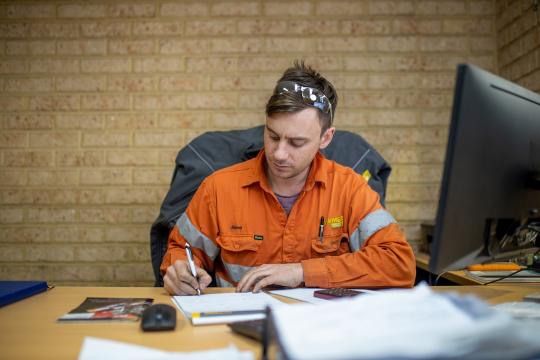Making sustainable choices and reducing our environmental footprint has been firmly on the radar for consumers and small businesses since single use plastic bags were banned in WA in July 2018.
Many small businesses have started investigating other ways to make their businesses greener. We take a look at seven steps you can take to reduce the environmental footprint of your small business.
Reduce use of single use items
In addition to plastic bags, the use of plastic straws, disposable coffee cups and excessive packaging of fruit and vegetables have also been in the firing line for creating unnecessary waste. If you have a café, restaurant or retail store, consider how you can minimise the use of single use items. Try offering customers an incentive (like a discount) to bring their own reusable coffee cup; don’t provide straws with drinks; or sell lightweight reusable net bags for items like fruit and vegetables. In workplaces, encouraging employees to bring their own cups and refillable water bottles (and if possible supplying a filtered water tap) can help reduce purchases of bottled water.
Recycle and reuse
Almost all business activities create some waste products, but disposing of them thoughtfully can help manage their environmental impact. E-waste (items such as batteries, old computer equipment, fridges, lightbulbs and more) often requires specialist disposal and can be a major issue in these days of fast evolution of technology. Paper, glass, plastic and metal should be recycled where possible to minimise landfill. You can contact your local government or check Planet Ark’s recycling near you website to see what items can be recycled in your area.
Consider whether by-products of your business can be put to good use. You may be able to donate coffee grounds from your café to local gardeners or compost your food waste. If you don’t have the space or time to manage compost, several companies such as BioPak, Kooda and Remondis offer a managed service.
Go digital
Old-fashioned hard copy record keeping can produce an enormous amount of paper. Switch to cloud based record keeping where possible – not only will it save paper and space, but you may find new business efficiencies through automation. With changes to effective marketing techniques, consider whether you really need to print a brochure or newsletter. Instead, you may be able to use email, search engine or social media marketing to reach your audience more effectively – and potentially save money in the process.
Reduce your energy use
Using efficient systems including LED lighting and solar panels can reduce grid power usage in your business. Behaviour changes such as ensuring all computers and printers are turned off overnight and setting airconditioners to moderate temperatures (24 degrees in summer and 18 degrees in winter is recommended for south-west WA) can also reduce your energy load.
Be waterwise
Installing water-efficient appliances such as low flow taps as well as fixing dripping taps and leaks quickly are simple ways to help use less water. If your business premises has a garden, investing in waterwise plantings using endemic and drought tolerant plants can cut down on your irrigation needs while keeping your business looking attractive. Water Corporation offers a range of waterwise programs to help support businesses implementing sustainable water approaches.
Spend green dollars
Buying green goods including recycled paper, biodegradable and non-toxic cleaning products helps ensure you are doing less damage while reinvesting in protecting the environment. By purchasing local where possible, you can help reduce the environmental impact of commercial transport, while also giving you the opportunity to support other local businesses.
Involve your community
These days, being green is not only good for the environment – it’s good for business! Let your customers and employees know that you are trying to reduce your environmental impact through your actions, and encourage them to participate. The Plastic Free July website has some good ideas about how to get everyone involved in creating a greener business.
More information
Join our Facebook group ‘I’m a small business owner in Western Australia’ to share your ideas and questions about going green with thousands of other WA business owners.




